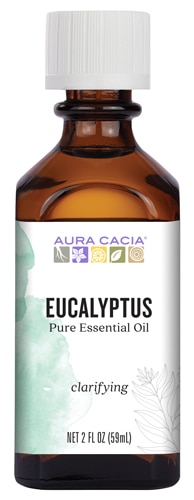Summer means sun, beaches and good vibes—but it also means bugs are everywhere. Mosquitos in particular are hard to avoid, and their bites can really itch and irritate your skin. The best way to fight off those pesky winged critters is by using an insect repellent when you’re outdoors, especially at night or in woodsy areas.

What is the best bug repellent, though? There’s no shortage of
insect repellent products to choose from, so it’s helpful to know more about them before you make a purchase. From ingredient information to how to best apply, this complete guide will walk you through everything need to know to stay sting and bite free –
safely – all season long.
How does bug spray work?
Most bug sprays are repellents, not insecticides, meaning they will keep mosquitos away from you without killing them.
“Bug spray works one of two ways: to immediately stop insects in their track the moment they come across a chemical, or to confuse their senses so they stay away from their target (you),” says Zackary DeAngelis, CEO and Founder of
pestpointers.com, a website geared toward helping individuals easily find tips online to solve their at-home pest, home and garden issues.
Since the body naturally produces carbon dioxide through breathing, sweating and your skin, it appeals to them, as mosquitos use that smell to find food. Luckily, a repellent will mask your body’s smell, so it makes them want to wander elsewhere.
What’s more, most bug sprays don’t smell good to bugs, so that’s another reason why they’ll want to stay away from you.
“Bug spray should always come from a safe and reputable company and have ingredients that are safe for home use,” though, he says. And if you want to
DIY your own bug spray, you can with a few natural ingredients, like coconut oil,
lemon essential oil and
eucalyptus essential oil.
What’s in bug spray?
The ingredients in bug sprays vary widely, so be sure to read labels to make sure you’re getting what you need. “Pyrethrins, for instance, are a class of chemicals generally used in bug sprays for flying insects and is meant to stop them in their tracks,” DeAngelis says.
The CDC recommends bug sprays with one of the following active ingredients, says Derek Gaughan with
Bug Lord, one of the largest DIY pest control websites.
- DEET
- Picaridin (known as KBR 3023 and icaridin outside the US)
- IR3535
- Oil of lemon eucalyptus (OLE)
- Para-menthane-diol (PMD)
- 2-undecanone
DEET is the most common ingredient in commercially available bug sprays. “Picaridin is another great type of bug spray with an even longer residual repellent. Oil of lemon eucalyptus is my top choice for a more natural product,” says Gaughan.
“DEET on the other hand is one of the most proven ingredients in mosquito repellent and is meant to confuse their senses so mosquitos can’t bite you,” DeAngelis says. So, it is effective. Yet, is DEET bad?
“DEET is not bad! If anything, it’s one of the most proven and effective mosquito repellents there is,” he says. The EPA even has
an article specifically addressing the safety and benefits of DEET products.
The EPA suggests DEET is completely safe to use as directed on the label; however, it can become very dangerous if inhaled or ingested. Plus, “it is still a chemical and many people today are looking for alternatives including essential oils. There have been rare reports of DEET causing lesions and hives in children and adults and complaints about its strong, pungent odor,” Gaughan explains.
“DEET can also damage rubber, vinyl, and plastic found in backpacks, cameras, clothing, glasses and watches,” Gaughan adds.
There might be some reason to go with a non-DEET bug spray instead. The main reason people want to avoid DEET is for a more natural alternative, he explains, or perhaps they experience irritation from it or have a sensitivity.
What is DEET free?
This is where
essential oils, such as eucalyptus and peppermint oil, can be helpful alternatives for DEET when dealing with mosquitos. There is evidence that eucalyptus and peppermint oil can work as a natural (most likely less effective) alternative to DEET. “If you want fewer chemicals, oil of lemon eucalyptus is an active ingredient that is proven to work, even against ticks,” Gaughan says.
You can still get a
DEET-free bug spray too. “Picaridin is the next most effective bug spray apart from DEET. Picaridin is also odorless, non-greasy, non-sticky, and does not degrade plastic, stain fabrics or irritate the skin,” Gaughan says.
Insect repellent tips – how to apply
Bug spray should be applied according to the directions on the product, as each may have its own specific instructions.
“For mosquitoes, bug spray should be applied and reapplied as soon as mosquitoes start to bite again. A general timeframe is 2 hours to reapply, but each spray will have different advice,” DeAngelis says.
For other types of bug spray that are meant to eliminate pests, it’s important to read the instructions for the specific product, as the chemicals in each spray vary widely for each bug, he adds.
For natural picks, apply more often. “
Oil of lemon eucalyptus must be applied much more frequently. Most products suggest they last 6 hours however my experience shows closer to 4 hours,” says Gaugahn. “Picaridin on the other hand can last upwards of 12 hours before needing to re-apply,” he says.




